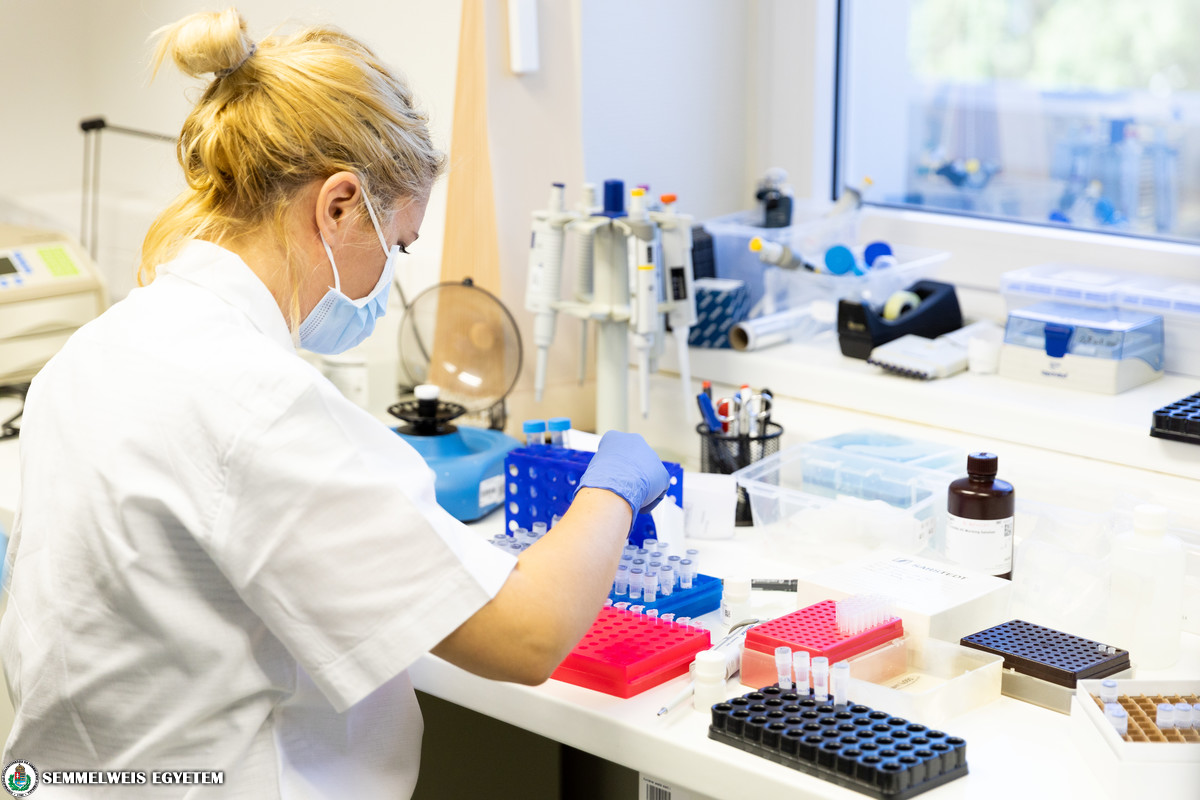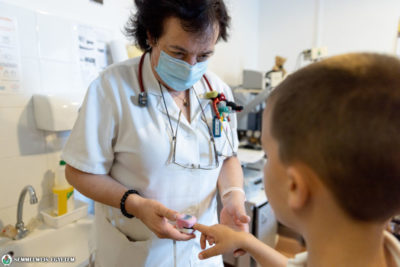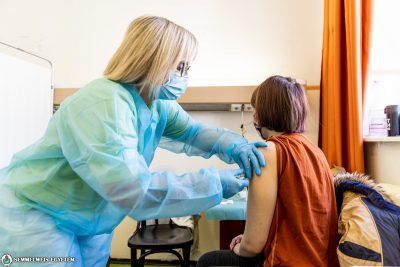The healthcare professionals of the Institute of Genomic Medicine and Rare Disorders have been deployed last year to take part in the battle against coronavirus. During the third wave in 2021, the institute has been transformed into a COVID-19 care facility (click here to read the article on the post-COVID care here).
The Institute’s post-COVID care welcomes patients with mitochondrial diseases who have already recovered from the infection. Mitochondrial disease is a debilitating disease that reduces the ability of the mitochondria to produce energy that our bodies use to function properly. As it affects approximately 3000 people in Hungary, it is considered a rare disease – explained dr. Mária Judit Molnár, university professor, head of the Institute of Genomic Medicine and Rare Disorders.
The age of onset of mitochondrial disease is also highly variable, with some disorders presenting from a very young age and others not becoming manifest until late in adulthood. Most frequent clinical manifestations associated with mitochondrial disease include muscle weakness and slurred speech. Clinical features may also cluster into several recognizable syndromes, including: epilepsy, abnormal metabolism, mental health issues, learning diabilities, cardiac manifestations, endocrine abnormalities, exercise intolerance and visual disorders.
 According to dr. Mária Judit Molnár numerous patients who have been diagnosed with a mitochondrial disease don’t go to regular check ups. It is advised to go to regular health checks every 4-5 months, especially if the disease is sub-clinical or new symptoms surface. Few clinical trials have led to the design of drugs aiming at enhancing mitochondrial function or reversing the consequences of mitochondrial dysfunction which are now used in the clinical treatment of mitochondrial diseases – pointed out dr. Mária Judit Molnár. The Institute of Genomic Medicine and Rare Disorders awaits not only former patients, everyone can participate in the genetic counseling, which can help in diagnosing this rare disease. Referral is not needed to enter the counseling session.
According to dr. Mária Judit Molnár numerous patients who have been diagnosed with a mitochondrial disease don’t go to regular check ups. It is advised to go to regular health checks every 4-5 months, especially if the disease is sub-clinical or new symptoms surface. Few clinical trials have led to the design of drugs aiming at enhancing mitochondrial function or reversing the consequences of mitochondrial dysfunction which are now used in the clinical treatment of mitochondrial diseases – pointed out dr. Mária Judit Molnár. The Institute of Genomic Medicine and Rare Disorders awaits not only former patients, everyone can participate in the genetic counseling, which can help in diagnosing this rare disease. Referral is not needed to enter the counseling session.
One of the main symptoms of the coronavirus infection is chronic fatigue and exercise intolerance, symptoms similar to those of mitochondrial diseases. The Institute is also involved in an international research collaboration investigating the progression of the disease in patients who have already been diagnosed with mitochondrial dysfunction due to a genetic disease. Based on previous experience, patients with hereditary mitochondrial diseases face a much longer recovery than the average population. The fact that older people, people with diabetes, cardiovascular diseases or obesity have a higher risk of getting coronavirus is also correlated to the dysfunction of mitochondria. However this type of mitochondria dysfunction is not a cause of a genetic disorder, but a consequence of the COVID-19 infection. In our research we aim to identify and treat the various symptoms caused by the coronavirus in patients who have insufficient energy production due to their rare disease – pointed out dr. Molnár, adding: as the previously mentioned patient group has a weaker energy balance than the average population, this may influence the severity of the disease and the longer recovery period.
Ádám Szabó
Photo: Attila Kovács – Semmelweis University
Translation: Norbert Lukács







